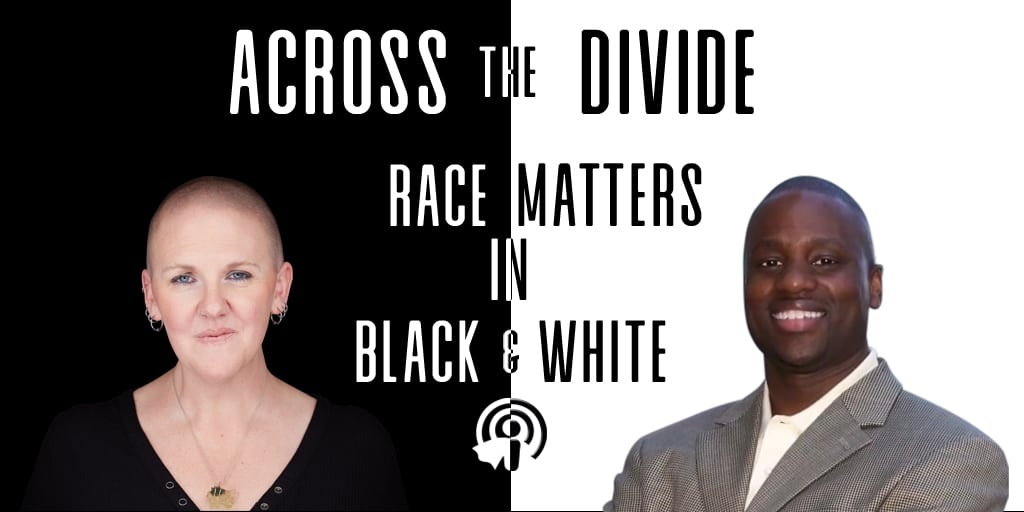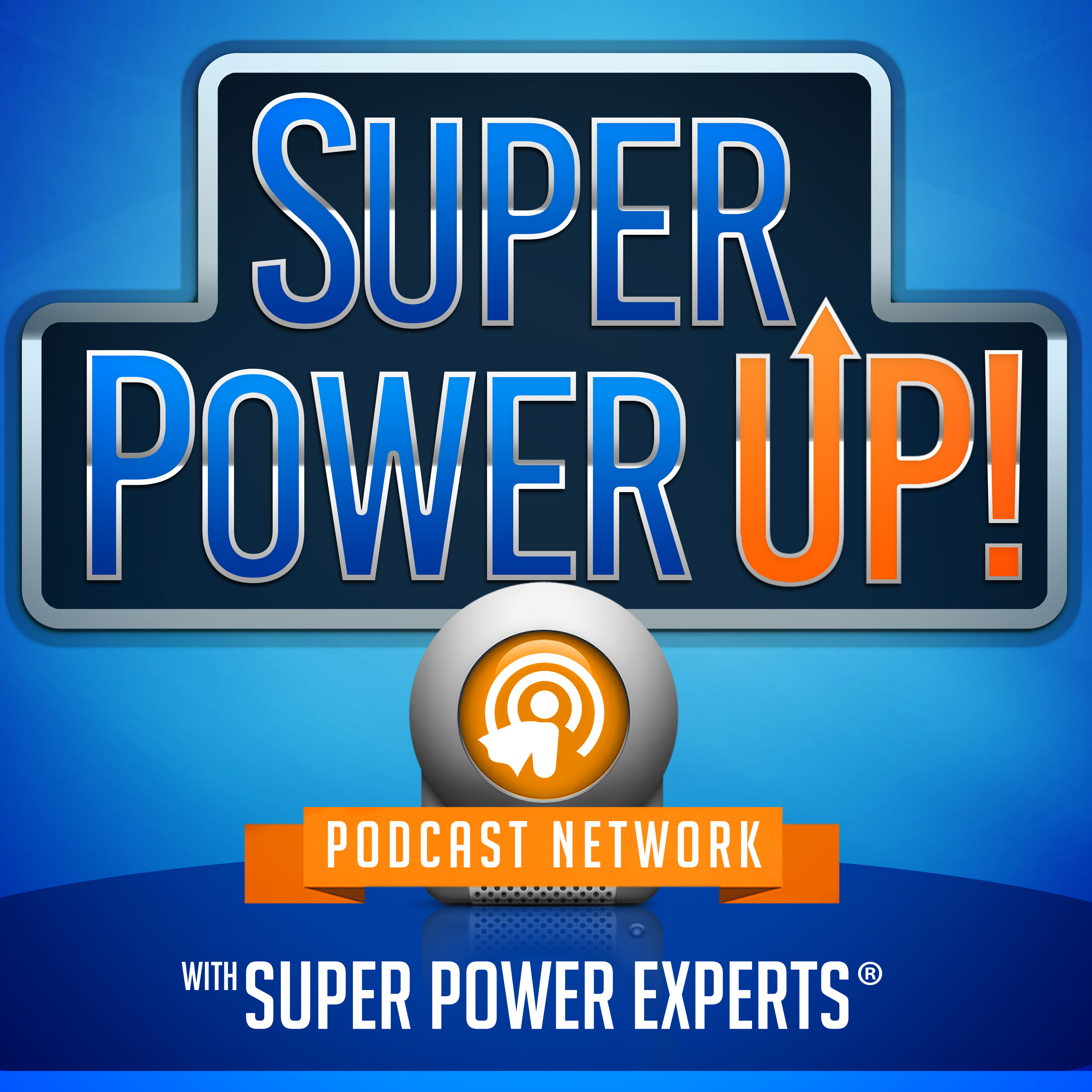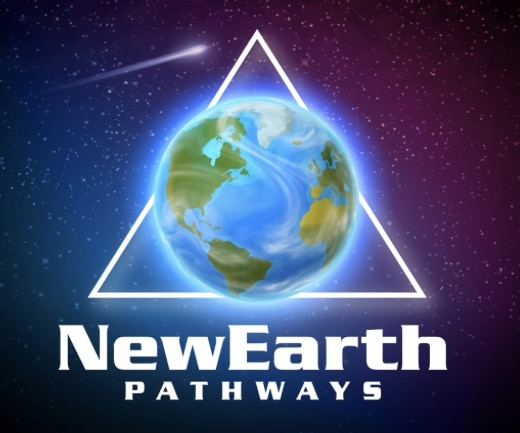How do we discuss race matters when there’s no agreement that race matters? In this episode of Disrupt Reality, host Tonya Dawn Recla chats with longtime friend, Dondrell Swanson. They introduce the upcoming three-part IM Series, Across the Divide: Race matters in black and white. As undergraduate students at Arizona State University in the 1990s, Tonya and Dondrell led a student organization that negotiated with the senior administration to implement sustainable systemic changes in response to significant racial tensions on campus during that time. Listen in as they share part of that story and set the stage for the powerful and disruptive Across the Divide IM Series.
Hello, everyone. This is Tonya Dawn Recla, your Super Power Expert. I am so excited for this episode of Disrupt Reality. We are introducing you to our next series, folks. This is exciting. Across the divide, race matters in black and white. I am over the moon delighted to have with me my dear friend, Dondrell Swanson, who has … we’ve been connected for over 25 years, people. Yeah. He’s got stories I’m sure he could tell, but he’s not going to get that chance. Maybe. I don’t know. Like I could stop it.
But he and I came together in this conversation for these messages to talk about our experiences from 25 years ago. Because not only did we develop a friendship during that time, but we got to experience how to manage unrest when racial relations and tensions get so high in a space. And we experienced that at Arizona State University 25 years ago. We use the series to highlight some of that experience and to talk about it, but also to use that as kind of a story. As a guideline of how do you move through separation into the escalation phase, and then find your way out into the reconciliation.
What we feel here at Super Power Experts is that people are just crying out for that on so many levels right now. To be heard, to be understood, and for real solutions to come to the table. No matter where you fall on that … perhaps you fall in the camp of people don’t really understand what is going on. Like, what’s happened. How did we get to this point? We address a lot of that, too. This is a safe place where you can listen and get some information through the series. We provide resources, folks. This is not a simple matter. It is not a quick, “I agree with this. I don’t agree with this.” There’s a complexity to it that we’re going to share with you.
Before we get you over to the series, which starts next week, please join me in welcoming to the show Mr. Dondrell Swanson. We’ll tell you all about him here in a moment and who he is. But I think it’s important for the folks to hear your voice. How are you, sir?
I’m doing great. Thank you so much. I’m excited to be here with you, and really excited about the awesome work that you all are doing on this platform.
Well, thank you. And we’re so appreciative that you’re coming in and bringing this perspective to the table of … Our experiences were pretty different in that walk, just as everybody’s experience is different. It kind of tugs on different strings and different things. But nobody knows what I’m talking about, so we need to set the stage for that. Dondrell, if you want to share with the folks;I said we were going to share a little bit about you from that time all the way back. Because, again, who you are now?I’d imagine you feel similar to how I do that it is a really clear byproduct of all of those experiences, some of what we did together at ASU. I think it’s important that we start there, and then who you were there. How would you describe yourself 25 years ago at Arizona State University when it became clear that there was a matter coming up that was having to be faced?
Yeah. At that time, I think I was a senior student at ASU. I had born and raised in California. Grew up in Oakland. Oakland, California is a very, very diverse community, although it’s typically represented as largely African American. When I say diverse, I think that’s relevant though is that we had a lot of populations in terms of representation, but we did not have a lot of interaction outside of school. We kind of all went back to our respective communities. When I came to ASU, the engagement with folks from diverse populations really changed for me from just ethnic diversity to also geographic diversity, ideological diversity, sexual orientation diversity. It really was an eye-opener for me, and a good experience.
Beautiful. Beautiful. And you, of course, as with everything you do, weren’t a typical student in the sense of go to your classes and then go about your day. You were heavily, heavily involved in the ASU community in a lot of different ways. Can you kind of describe all of the activities that you were involved with? Not all of them, but let them know a little bit about who we’re talking to here.
Well, sure. Let’s see. What was I doing? In addition to being a student, I was a president of our fraternity. I was also one of the student leaders on campus in the sense that we taught classes. And then we had a fairly, what they called the premier organization on campus called the Devil’s Advocates that was a highly selective process to do. Really represent being ambassadors to the university. Those are probably some of the main things I think I was involved in at the time. Outside of our work, which really kind of centered around how do we take different ideologies from a social representation perspective and really advanced that … So, what people would today call diversity education.
Beautiful. Beautiful. Folks, we’re going to take a break here quickly. When we come back, we’re going to dive a little bit into more about what was going on at Arizona State University at the time, and what prompted Dondrell, and I, and others to start having some serious conversations about how to walk through some of these really challenging times. We’ll share all that with you when we come back. Before we do Dondrell, where can people go to find out more about you?
That’s a great question.
So, make sure you come here. Well, we’ll make sure we’ve got information and everything to satisfy your curiosity at the site. Join us there for superpowerexperts.com/messages, folks. When we come back, we’re going to continue this conversation with Dondrell Swanson about across the divide. How do we cross that divide that he so eloquently pointed out really isn’t just about race, but it’s such an obvious kind of polarization right now for us to just start looking at how can we maybe do this better? Can we expand the conversation a little bit, and really walk toward that reconciliation? So, stay tuned folks. When we come back from the break, we’ll tackle these issues and so much more. Be right back as we explore more on race matters.
To listen to the entire show click on the player above or go to the SuperPower Up! podcast on iTunes.
Podcast: Play in new window





